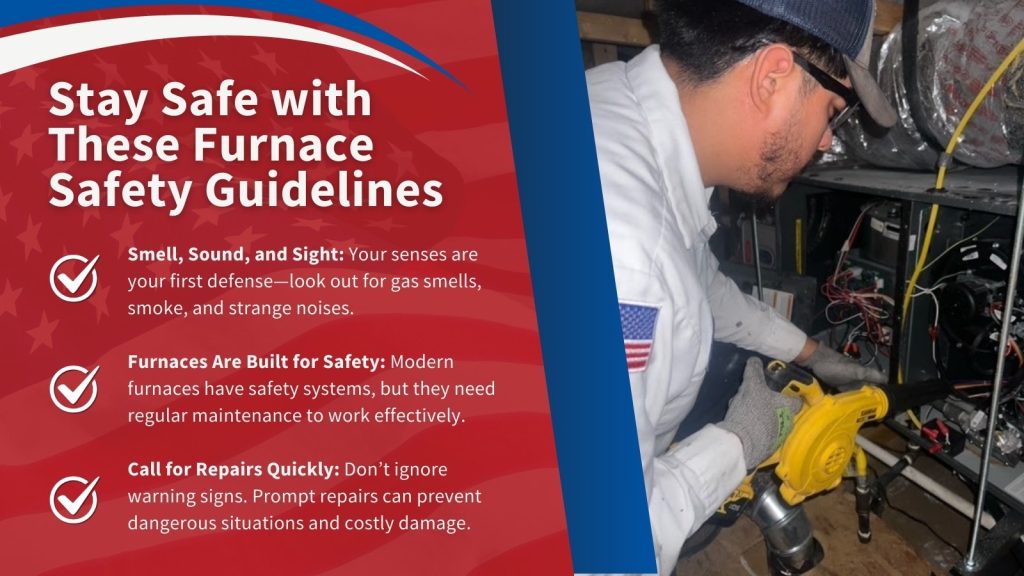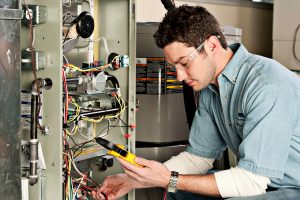We’re likely to get a couple of cold spells this winter which means we’ll need to rely heavily on our furnaces until the warmer winds come along. That being said, many customers are dealing with older or outdated furnaces that are in need of replacement, but now might not be the best financial time to make that important investment. We totally understand. While we’d heavily advise a customer with an old furnace to upgrade for safety reasons, we’d also like to reassure customers who aren’t ready to make that leap.
Here are some guidelines to help you run your furnace safely this year, with some tips that can give you peace of mind. Remember, if you detect anything out of the ordinary or that bothers you, call our team ASAP for furnace repair in Las Vegas.

Use Your Senses to Detect a Problem
Your senses are the first line of defense when trying to stay safe. This can be said about a lot of things in life (like the term “trust your gut”) but it’s especially important for furnace safety. Your furnace has a lot of safety systems built into it, but when one of those fails, it can be up to you and some detectors to notice when something is wrong. Here are a few examples of what you should stay weary of:
- Smelling gas or flammable materials. Gas has a chemical that is added to it called mercaptan, which is what gives it that rotten egg-like smell. If you notice this smell or some other kind of scent that doesn’t smell right (like burning plastic or ammonia), then you should shut your system off and call for help immediately.
- Smoke and other toxic fumes. A burning smell can also release toxic fumes or chemicals that can be bad for your health. Remember that if anything smells or feels off about your furnace, you should call us for help.
- Carbon monoxide detection. Some chemicals or fumes can’t be detected, like carbon monoxide. It’s invisible and odorless, which is what makes it so deadly. Make sure your CO detectors are in working order.
- Loud noises. Loud noises might not immediately seem like an emergency, but they can signal the breakdown of a safety component in your furnace. For instance, if a loud cracking sound comes from your heat exchanger breaking, that could mean that carbon monoxide will begin to leak into your home’s air. Take sounds as a sign that something is wrong.
Furnaces Are Designed to Be Safe!
Look, we don’t want to scare anyone. Furnaces are very safe when they run correctly. They’ve even got sensors and powerful systems that shut it down in the event of overheating or any leaks. But these components can break down over time and cause your system to become safe if it’s not attended to by a professional.
Schedule Repairs If You Need Help
If your furnace hasn’t been maintained or repaired in a long time, it might be a good idea to schedule an appointment with our team so we can ensure it’s running safely.
When your HVAC system or plumbing isn’t looking so hot, it’s time to get Johnny On the Spot.

